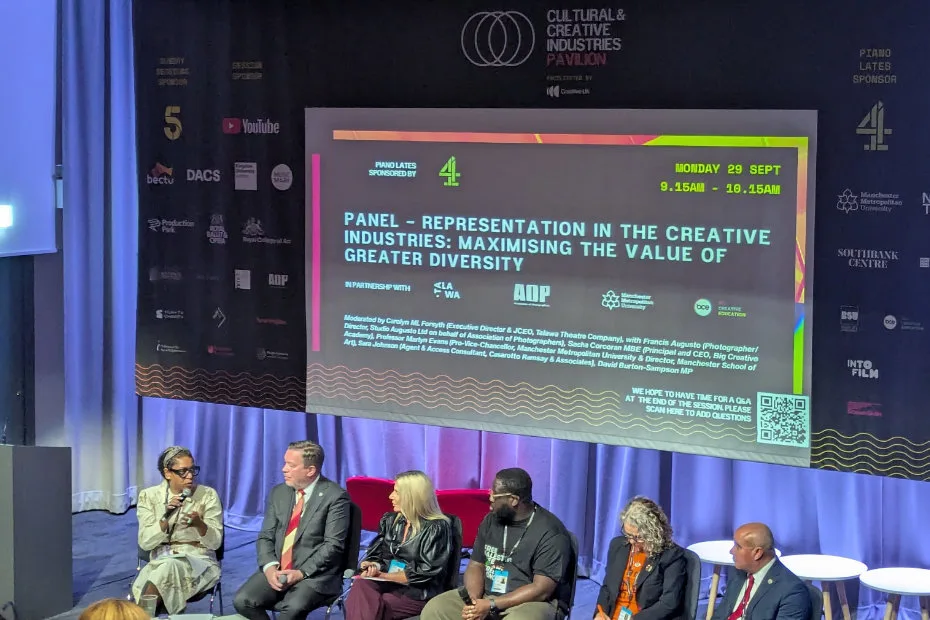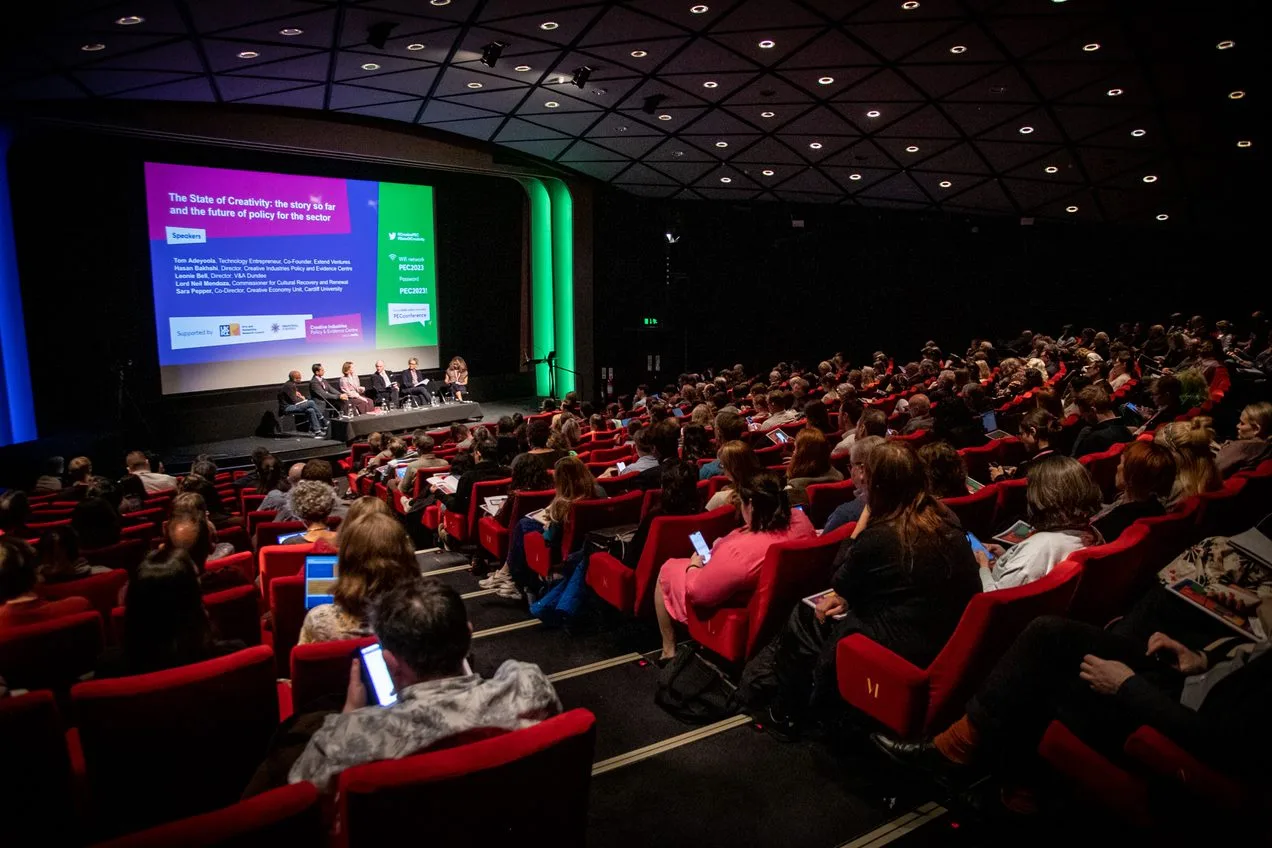Our Industry Champions identify the policy changes needed to help their organisations and sectors
I’ve been advocating on behalf of the creative industries for some time now, and I remember it becoming clear to me very quickly just how much a lack of independent evidence was holding the sector back from realising its full potential.
This is why the Creative Industries Policy and Evidence Centre (PEC) was so needed, and to succeed, it needs to be informed by the creative industries themselves. Alongside a sector-wide consultation, the PEC has established a fantastic network of Industry Champions to ensure it’s listening and learning from those working in the sector.
Industry Champions are trusted and respected practitioners, drawn from all parts of the creative industries and from across the UK. They have deep knowledge of industry practice and a desire to inform academic research that leads to better policies for the creative industries.
Over the summer we circulated a simple question to all our Champions: What is the key policy change that could help your organisation or sector?
Six themes emerged:
- Access to talent
- Education
- Local growth
- Investment
- Innovation
- Welfare
Access to talent
Some Champions told us that access to international talent is currently their top priority, and therefore getting the UK’s immigration system right is absolutely vital. What came through most strongly was a concern about the £30,000 salary threshold, which some believe is too high and an inappropriate measure for judging the value of creative talent.
The importance of access to skilled and talented people in the UK also came up. The ask here was to put in place the support needed for them to reach out to and attract a greater diversity of workers and young people. One Champion recommended that this could in part be achieved through a more flexible Apprenticeship Levy.
Education
A number of Champions were keen to ensure that schools are well supported and incentivised to deliver creative subjects, and worried that the drop in the delivery and take-up of these subjects will harm their businesses and the wider economy, stifle the next generation of talent, and impact most significantly on young people from disadvantaged backgrounds who are least likely to engage in arts and culture at home.
Reforming policies around apprenticeships and vocational education was also highlighted as crucial to ensure a more joined-up and strategic approach to the skills pipeline. Then making these training routes and career opportunities – in all their diversity – well known to young people when in school.
And more broadly, one of our Champions stressed the importance of valuing creativity in all its forms – helping young people discover their own creativity, and recognising its role across society.
Local growth
Specifically growth outside of London and the South East, and not just growth in the strict economic sense: many Champions highlighted the social value that local businesses, arts organisations, creators, buildings and places can bring to local communities, giving them a sense of ownership and a means of bringing people of all backgrounds together. The importance of sustainable local growth, and the role that the creative industries do and could play there was also highlighted.
A couple of Champions recommended that this could be achieved by prioritising local organisations in procurement processes. Diversifying the sector by using fiscal incentives and others to attract creative businesses and people to live and work across the regions was also flagged as a priority.
Investment
Some highlighted the current and potential role of tax reliefs in attracting inward investment, particularly for areas where extending access is important. Zero-rating VAT on e-books emerged as one idea, and extending the current tax reliefs for TV was another – both with the intention to serve a broader social and economic purpose.
Harnessing our tax system to generate more investment in cultural venues also came through in the responses – either through business rates or a tourism levy. And recognising that investment in the creative industries means investment in people and ideas, not just infrastructure and physical things, was flagged as vital if the sector is to attract the support it needs to grow.
Innovation
Ideas here included wider access to Research & Development tax reliefs, and greater support for working and innovating internationally. Better conditions for innovation more broadly were also identified as a priority, with some Champions highlighting unnecessary red tape that stifles the growth of their businesses or ability to act on ideas.
Ensuring young people have the opportunity to innovate with tech was also highlighted, but in a way that pays due attention to children’s wellbeing and rights.
Welfare
The welfare of creators, freelancers, creative workers and small businesses was highlighted in particular by a number of Champions. They told us that making rights a reality is a top priority. Re-introducing the Disability Rights Commission was one suggestion.
Introducing a basic income, guaranteeing income security or further support for those under financial pressure for creators and freelancers also emerged as key, as was the importance of paying small businesses and individuals on time.
These themes and ideas, together with the PEC’s wider industry engagement, will inform its priorities and ongoing work. If you work in the sector and would like to add anything to the above, the PEC’s policy team is keen to hear from you (policy@pec.ac.uk).
Photo by Andrew Ridley
Related Blogs
From Wales to the World: Why International Cultural Policy Needs a Future Generations Lens
Can international cultural policy be shaped by focusing on future generations?
10 facts about Creative Industries growth potential
Discover ten key findings from the report 'High-Growth Potential Firms in the UK's Creative Industri…
Why London is investing in Creative Enterprise Zones
London Mayor Sir Sadiq Khan announces £2.2 million in new funding for Creative Enterprise Zones.
Research resources on Creative Clusters
We’ve collated recent Creative PEC reports to help with the preparation of your Creative Cluster bid…
What UK Job Postings Reveal About the Changing Demand for Creativity Skills in the Age of Generative AI
The emergence of AI promises faster economic growth, but also raises concerns about labour market di…
Creative PEC’s digest of the 2025 Autumn Budget
Creative PEC's Policy Unit digests the Government’s 2025 Budget and its impact on the UK’s creative …
Why do freelancers fall through the gaps?
Why are freelancers in the Performing Arts consistently overlooked, unseen, and unheard?
Insights from the Labour Party Conference 2025
Creative PEC Policy Adviser Emily Hopkins attended the Labour Party Conference in September 2025.
Association of South-East Asian Nations’ long-term view of the creative economy
John Newbigin examines the ASEAN approach to sustainability and the creative economy.
Culture, community resilience and climate change: becoming custodians of our planet
Reflecting on the relationship between climate change, cultural expressions and island states.
Cultural Industries at the Crossroads of Tourism and Development in the Maldives
Eduardo Saravia explores the significant opportunities – and risks – of relying on tourism.












